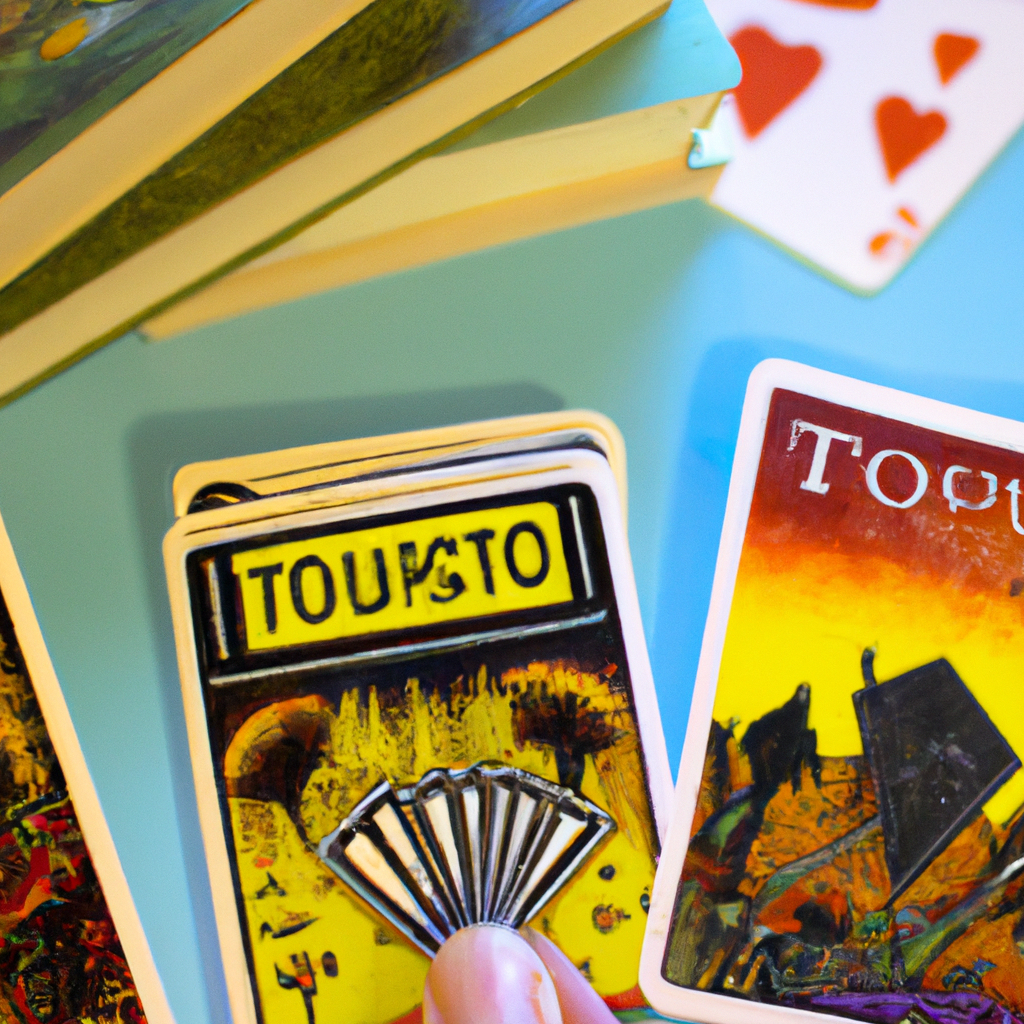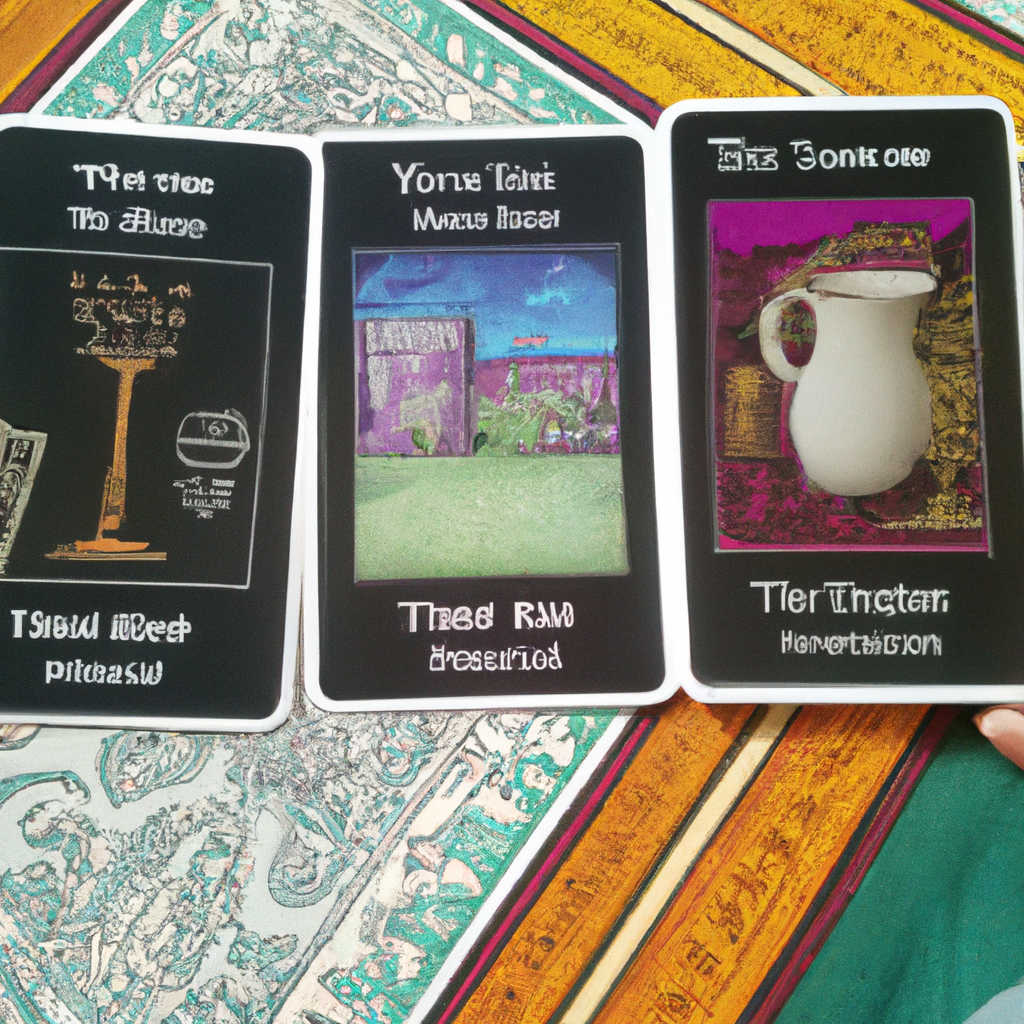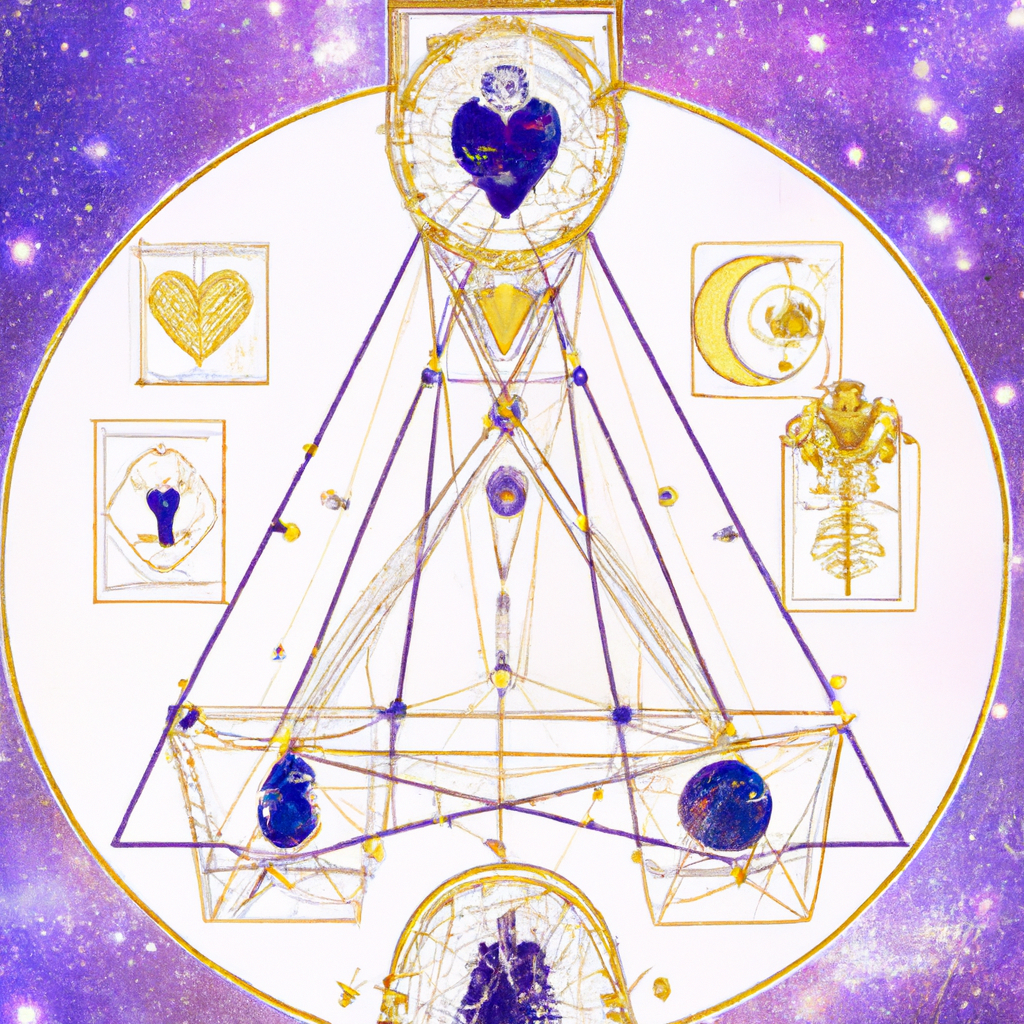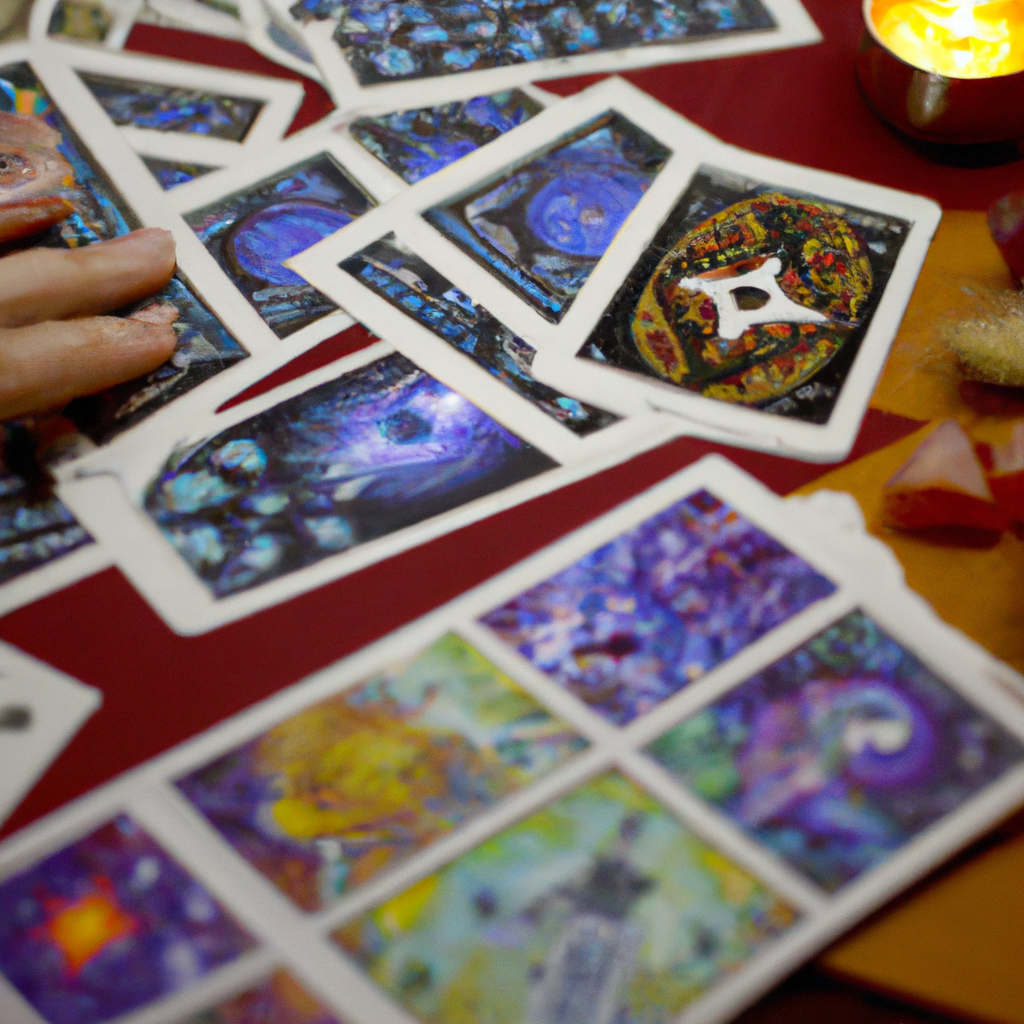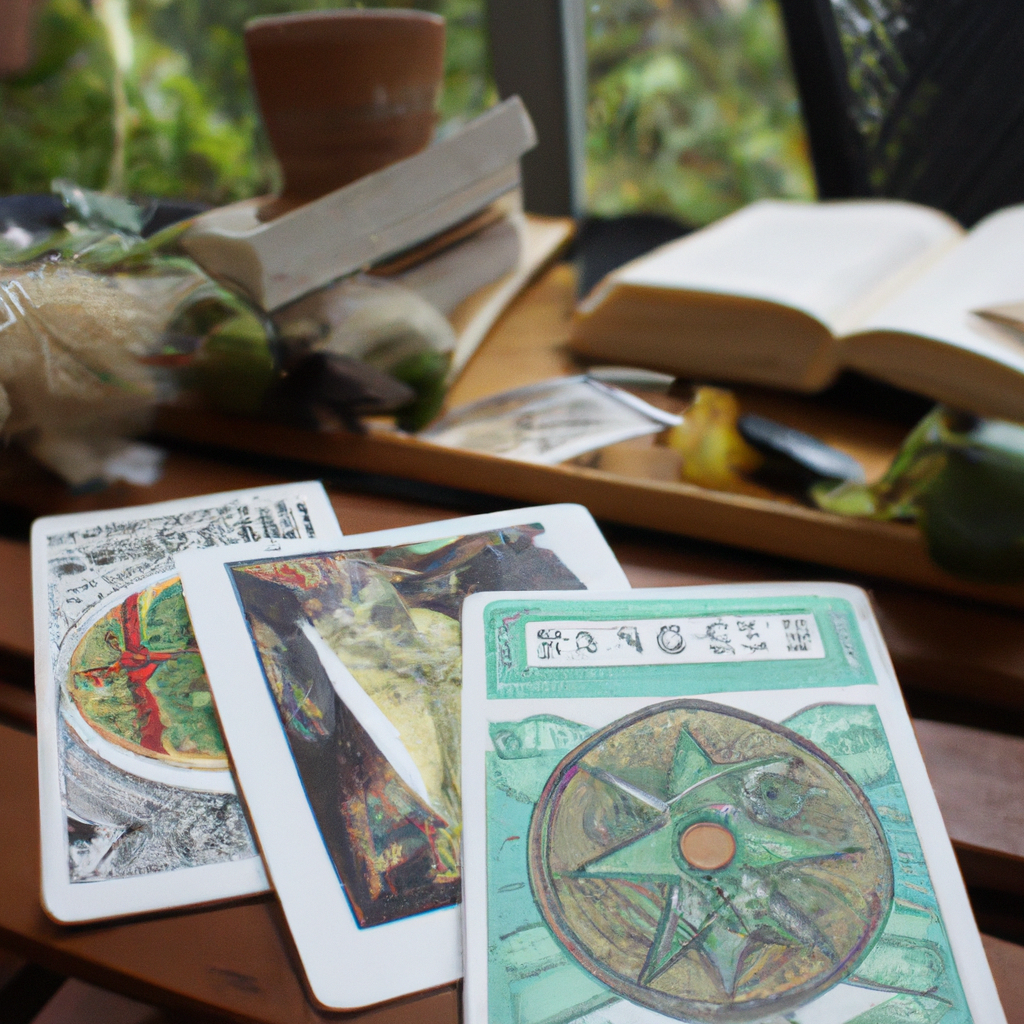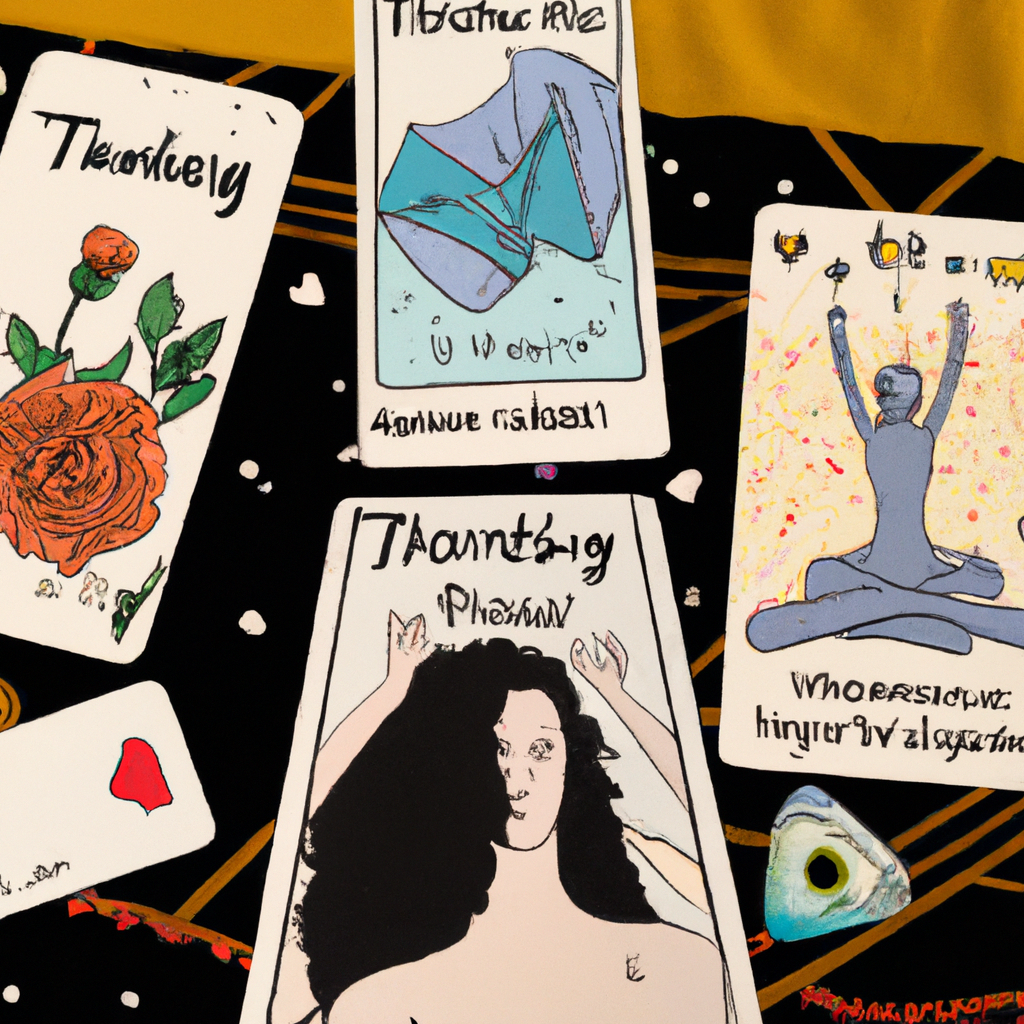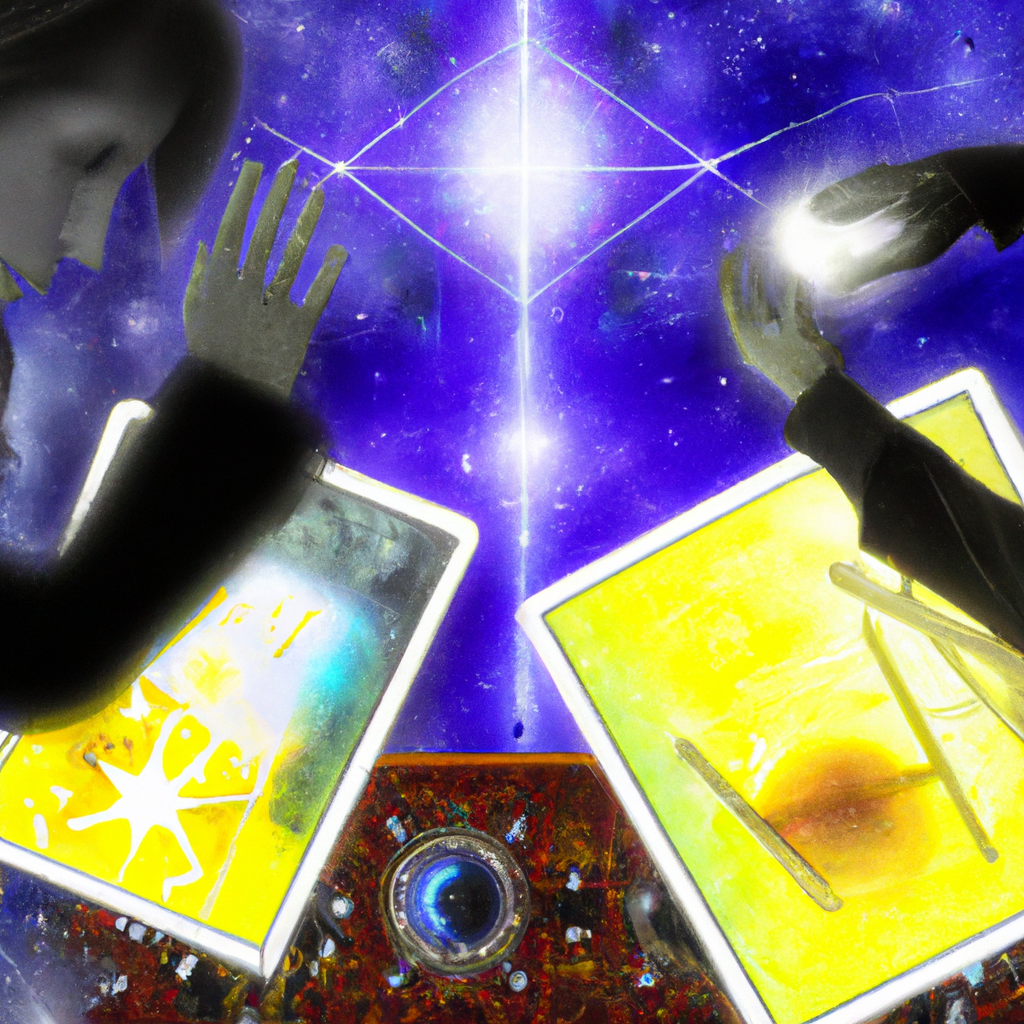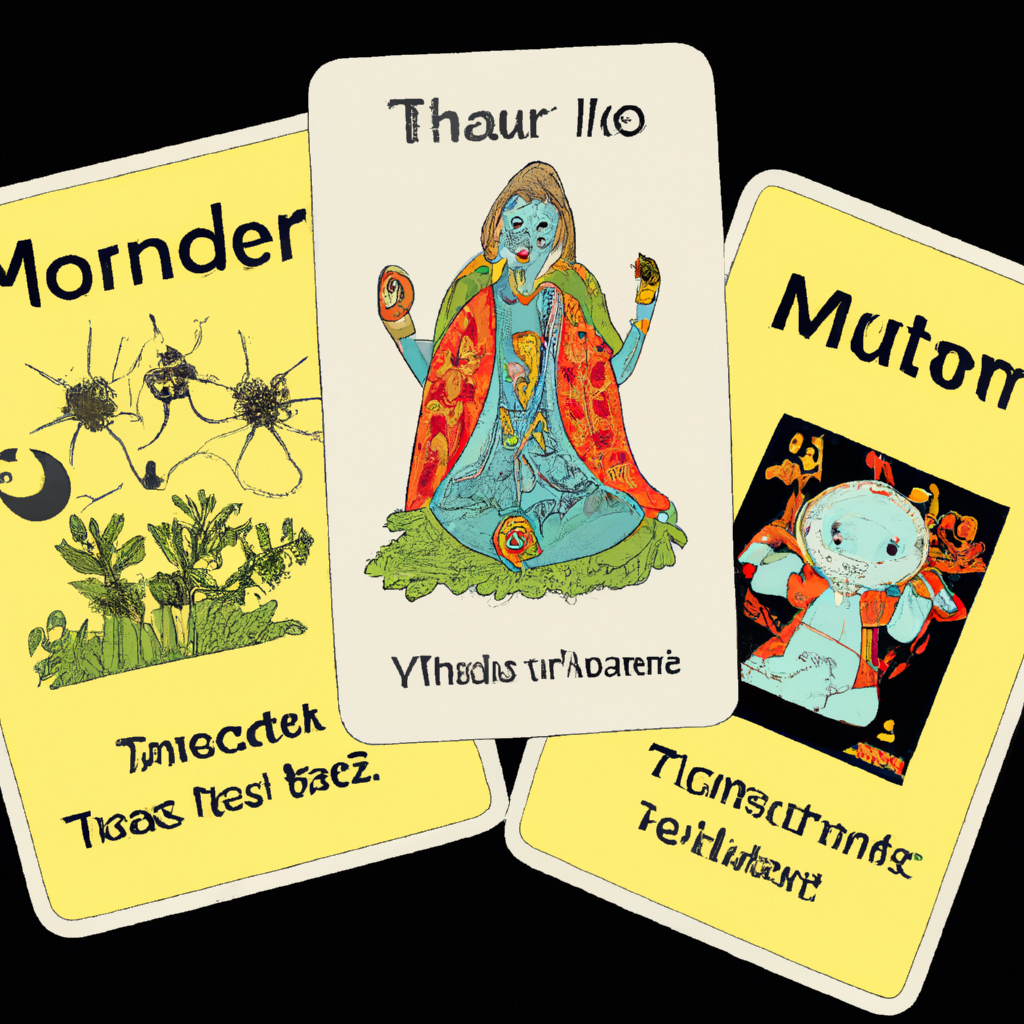Shopping Cart.
No products in the cart.
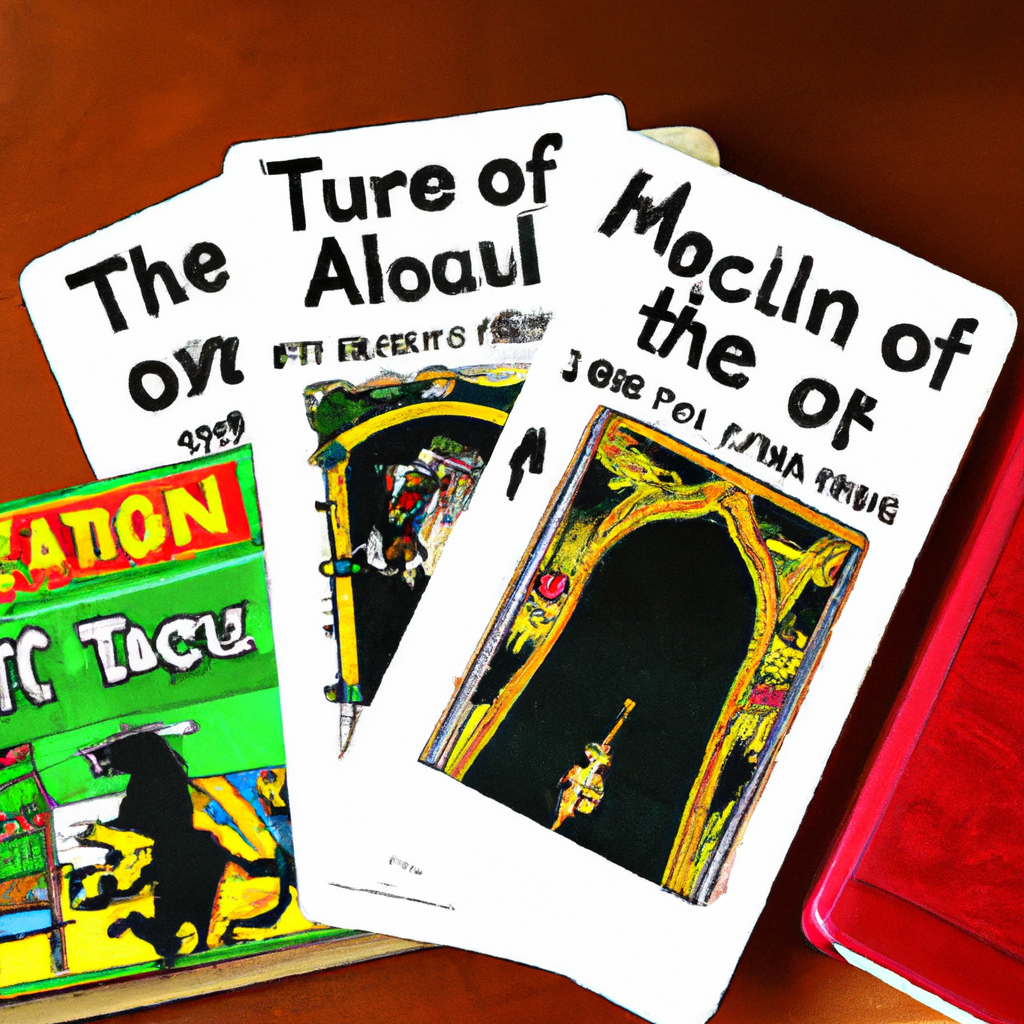
Tarot cards, with their intricate designs and mysterious aura, have been a source of fascination for centuries. They’ve been used for everything from divination to self-reflection, and they’ve also been the subject of countless myths and misconceptions. Today, we’re going to debunk some of these common tarot myths and separate fact from fiction.
Firstly, let’s tackle the myth that tarot cards are inherently evil or associated with dark forces. This is a misconception that has been perpetuated by Hollywood and popular culture, painting tarot as a tool of witches and sorcerers. In reality, tarot cards are simply a tool for introspection and guidance. They’re not inherently good or evil; it’s all about how they’re used. Just like a knife can be used to prepare a delicious meal or cause harm, tarot cards can be used for positive or negative purposes depending on the user’s intentions.
Next, there’s the myth that you must be psychic to read tarot cards. While it’s true that some tarot readers may have psychic abilities, it’s not a prerequisite for reading tarot. Tarot is a skill that can be learned, much like learning to play a musical instrument or speak a foreign language. It’s about understanding the symbolism in the cards and interpreting them in the context of the question or situation at hand. So, don’t let the fear of not being psychic deter you from exploring tarot.
Another common myth is that tarot cards can predict the future with pinpoint accuracy. This is a misunderstanding of how tarot works. Tarot cards don’t tell you what will happen in the future; rather, they provide insight into the current situation and potential outcomes based on the present course of action. They’re more about providing guidance and perspective than predicting specific events.
Then there’s the myth that you shouldn’t buy your own tarot deck, but rather, it should be gifted to you. This is a tradition that has been passed down through generations, but there’s no hard and fast rule about it. If you feel drawn to a particular deck and want to buy it for yourself, go for it! The most important thing is that you feel a connection with your tarot deck, whether it’s a gift or a personal purchase.
Lastly, there’s the myth that reading tarot for yourself will bring bad luck. This is simply not true. Reading tarot for yourself can be a powerful tool for self-reflection and personal growth. It’s a way to tap into your intuition and gain insight into your thoughts, feelings, and life situations. There’s nothing unlucky about that!
In conclusion, tarot is a rich and complex tool that has been shrouded in myth and mystery for centuries. But when we peel back the layers of superstition and misconception, we find a tool that is accessible, empowering, and enlightening. So, whether you’re a seasoned tarot reader or a curious beginner, don’t let these common myths deter you from exploring the fascinating world of tarot.
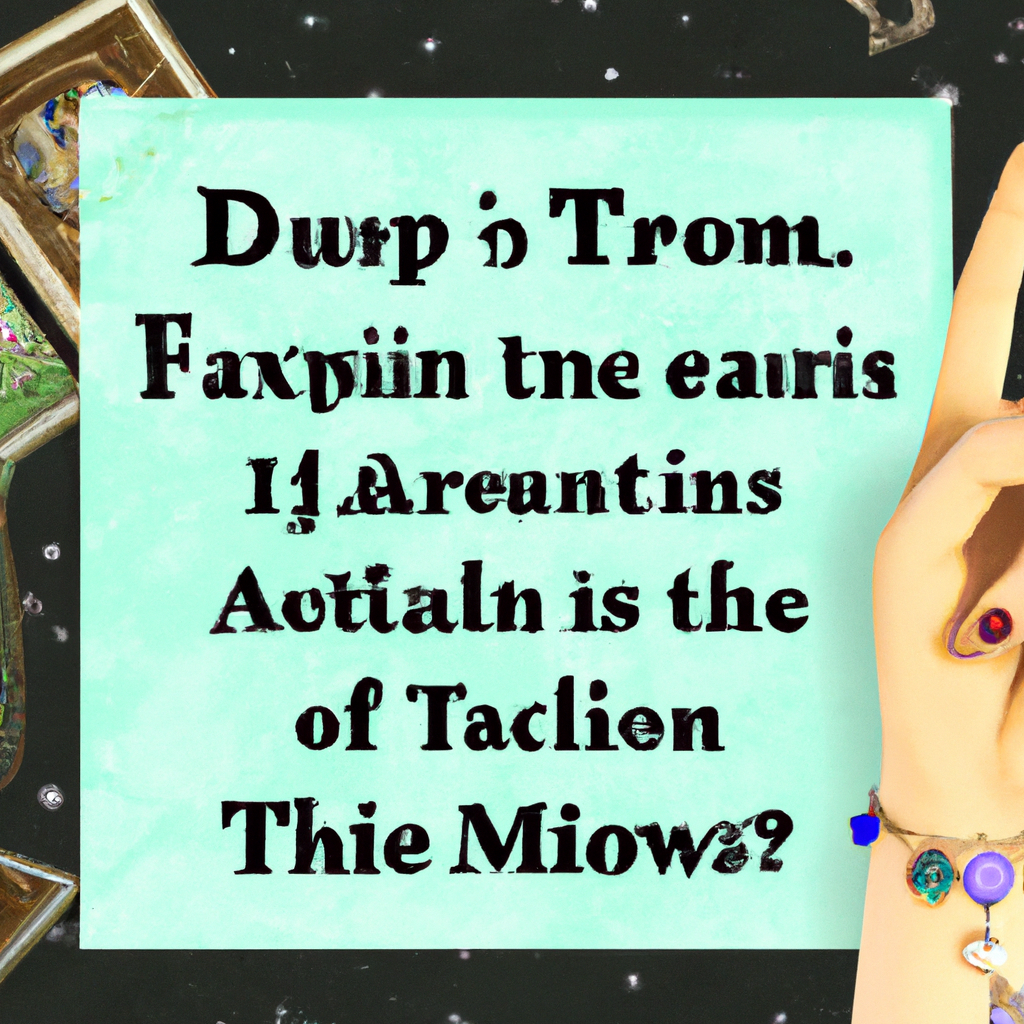
Tarot reading, an ancient practice shrouded in mystery and intrigue, has been a subject of fascination for centuries. It’s a world filled with vivid imagery, powerful symbols, and a rich tapestry of interpretations. However, along with its allure, tarot reading has also been a breeding ground for numerous myths and misconceptions. Today, we’re going to debunk some of these common tarot myths, separating fact from fiction, and hopefully, shedding some light on this captivating practice.
One of the most prevalent myths is that tarot reading is a form of fortune-telling. Many people envision a mystical woman in a dimly lit room, peering into a crystal ball, predicting a person’s future with absolute certainty. However, this couldn’t be further from the truth. In reality, tarot reading is more about guidance and insight rather than predicting the future. It’s a tool for self-reflection, helping individuals understand their current circumstances and potential outcomes based on their actions. It’s not about predestined fate, but about empowering individuals to make informed decisions.
Another common misconception is that tarot cards are inherently evil or associated with dark forces. This myth likely stems from the fear of the unknown and the often-misunderstood symbolism in the cards. In truth, tarot cards are simply tools, and like any tool, their use depends on the intention of the user. They can be used for positive self-discovery, personal growth, and even for fun. There’s nothing inherently evil or dark about them.
The third myth we often hear is that you must be psychic to read tarot cards. While it’s true that some tarot readers may have intuitive abilities, it’s not a prerequisite for reading tarot. Tarot reading is a skill that can be learned and developed over time. It involves understanding the symbolism in the cards and interpreting them in the context of the question or situation at hand. Anyone with an open mind and a willingness to learn can become proficient in tarot reading.
Lastly, there’s a myth that you should never buy your own tarot deck, that it should be gifted to you. This is a charming tradition, but it’s not a hard and fast rule. Buying your own tarot deck allows you to choose one that resonates with you personally. It’s about connecting with the imagery and symbolism in the deck, which can enhance your readings and your understanding of the cards.
In debunking these common tarot myths, we hope to demystify this ancient practice and make it more accessible to everyone. Tarot reading is not about predicting the future or dabbling in dark forces. It’s not exclusive to psychics, and you can certainly buy your own tarot deck. It’s a tool for self-reflection, personal growth, and empowerment. So, whether you’re a seasoned tarot reader or a curious beginner, remember to approach tarot with an open mind, a willingness to learn, and most importantly, a sense of fun and adventure. After all, the journey is just as important as the destination.
Tarot cards, with their intricate designs and mysterious aura, have been a source of fascination for centuries. They’ve been used for everything from divination to self-reflection, and they’ve also been the subject of countless myths and misconceptions. Today, we’re going to debunk some of these common tarot myths and separate fact from fiction.
One of the most prevalent myths is that tarot cards are inherently evil or associated with dark forces. This couldn’t be further from the truth. Tarot cards are simply tools, and like any tool, they can be used for good or ill depending on the intentions of the user. They’re not inherently good or evil any more than a hammer or a paintbrush is. In fact, many people use tarot cards as a tool for self-reflection and personal growth, not for nefarious purposes.
Another common myth is that you have to be psychic to read tarot cards. While it’s true that some people who read tarot cards also identify as psychic, it’s not a requirement. Tarot cards are a tool that anyone can learn to use, regardless of whether or not they have psychic abilities. The cards themselves are rich in symbolism and meaning, and learning to interpret these symbols is a skill that can be developed over time.
A third myth is that tarot cards can predict the future. This is a bit of a tricky one, because while tarot cards can provide insight into potential future outcomes, they’re not a crystal ball. They can’t tell you exactly what will happen in the future. Instead, they provide a snapshot of the current energy and potential outcomes based on that energy. They’re a tool for reflection and insight, not fortune telling.
The fourth myth we’ll debunk is the idea that you can’t buy your own tarot deck. This is a myth that’s been perpetuated for years, but there’s no truth to it. The idea is that your first tarot deck should be a gift, but there’s no rule that says this has to be the case. If you feel drawn to a particular deck and want to buy it for yourself, go for it! The most important thing is that you feel a connection to the deck you’re using.
Finally, there’s the myth that tarot cards are only for women. This is a stereotype that’s been perpetuated by media portrayals of tarot readers as predominantly female, but it’s not based in reality. Tarot cards are for everyone, regardless of gender. Many men use tarot cards for self-reflection and personal growth, and there are plenty of male tarot readers out there.
In conclusion, tarot cards are a fascinating tool that can be used for self-reflection, personal growth, and insight. They’re not evil, you don’t have to be psychic to use them, they can’t predict the future, you can buy your own deck, and they’re not just for women. So the next time you hear one of these myths, you’ll know the truth. And who knows? Maybe you’ll even feel inspired to pick up a deck and start exploring the world of tarot for yourself.
In conclusion, debunking common tarot myths helps to separate fact from fiction. Tarot reading is not inherently evil, nor does it predict death or misfortune. It is a tool for self-reflection and guidance, not a definitive prediction of the future. The cards do not hold power, but are interpreted by the reader. Lastly, anyone can learn to read tarot cards; it is not a gift exclusive to psychics or mediums.
